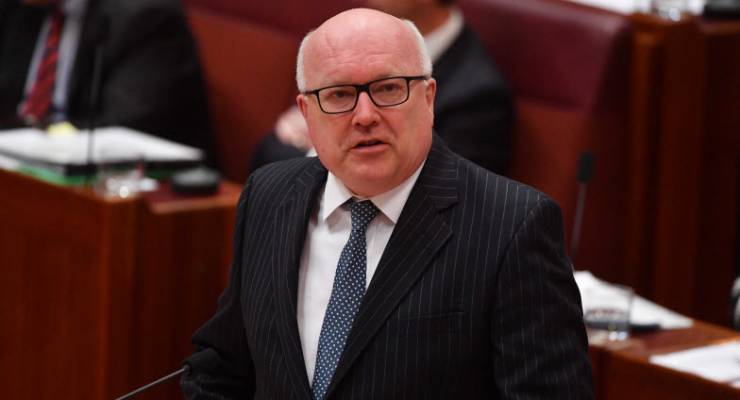
A $12.7 million policy for parental dispute resolution the government announced without consulting industry first could raise constitutional issues, according to the Law Council of Australia. But how did it get into the budget in the first place?
The government announced in Tuesday’s budget that it would invest $12.7 million in what it is calling “an innovative forum” for resolving simple family law disputes between parents who self-represent. The Parent Management Hearings will be trialled in Parramatta in western Sydney, with a second site to be announced later, Attorney-General George Brandis announced on Tuesday.
While the government has been applauded for many of the domestic violence measures in the budget, this one has left law experts and the opposition scratching their heads, with no apparent consultation on the proposal before it was announced.
The policy is the brain child of Sydney University law professor Patrick Parkinson and lawyers Brian Knox and Dr Nicky McWilliam. In a speech to the Supreme Court of Queensland this week before the budget, Parkinson admitted that he had proposed the idea as part of a private submission in January:
“One of the recommendations was that there should be a pilot program established in western Sydney or a community with a similar demographic profile, which would handle cases referred to it by the courts in which both parties either already were, or would choose to be, self-represented.”
Parkinson said offering this alternative for parents who could not afford legal representation would improve justice in separation situations:
“The relevant law and court procedures have become excessively complicated, with requirements that are irrelevant to many matters. An inquisitorial system is more likely to work out the relevant issues than one reliant upon self-represented litigants to present their cases and to adduce relevant evidence.”
It is unclear why the government adopted this proposal wholly, including the aspect of establishing it in western Sydney to start, without consulting more widely. On ABC Radio Sydney this morning, Parkinson defended the policy, stating he had briefed the courts about the proposal, and said that consultation would occur as legislation was drafted to support the trial.
“Everything that is involved has been tested somewhere,” he said.
But legal experts are concerned about the proposal. Law Council president Fiona McLeod said in a statement the policy raised constitutional issues:
“The Law Council considers that $12.7m to establish ‘Parenting Management Hearings’ would have been better applied to the courts. We will wait to see the details of the announcement, however, at first glance it appears to raise significant constitutional and other issues.”
Crikey asked what constitutional issues it specifically raised but was told the council was still examining the detail of the proposal, such as it is at this stage. The Law Council of NSW also said it was still reviewing the proposal. The trial could face hurdles in the Senate, however, with Labor’s shadow attorney-general Mark Dreyfus saying in a statement that the lack of detail and consultation around the proposal was a concern.
“There is no information available as to how these appointees will be accredited or how the system will be regulated, and what safeguards would be in place to ensure the hearings are run responsibly. Labor is also concerned that decisions would only be reviewable by the Federal Court, which does not normally deal with family law matters.”
Dreyfus said the hearings would also raise concerns about family law matters where domestic violence was involved, if the parents were not permitted to have legal representation. Dreyfus said a trial without consultation was not the best way to approach family law: “You cannot ‘test’ something on distressed families and parents in the midst of custody battles to see if it works. These are people’s lives — you must make sure it is a good idea first.”
The shadow attorney-general said Brandis should first fill the vacancies in the Family Court judicial positions first.
The man behind the proposal is also an opponent of marriage equality, and Parkinson also wrote a controversial anti-Safe Schools paper, although he conceded he was not an expert on same-sex attraction, sexual orientation or gender issues. The paper, among other things, used anecdotal evidence to claim that children might be bullied on “Wear It Purple Day” for not supporting LGBTI rights. Parkinson has previously been paid by the Australian Christian Lobby to conduct research that is often cited against same-sex parenting, and he has also spoken against marriage equality at an ACL event and in newspaper columns.








Crikey is committed to hosting lively discussions. Help us keep the conversation useful, interesting and welcoming. We aim to publish comments quickly in the interest of promoting robust conversation, but we’re a small team and we deploy filters to protect against legal risk. Occasionally your comment may be held up while we review, but we’re working as fast as we can to keep the conversation rolling.
The Crikey comment section is members-only content. Please subscribe to leave a comment.
The Crikey comment section is members-only content. Please login to leave a comment.